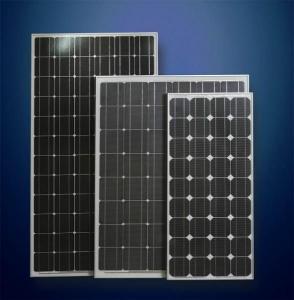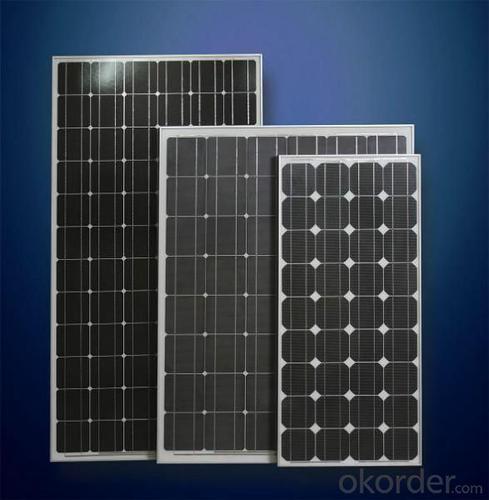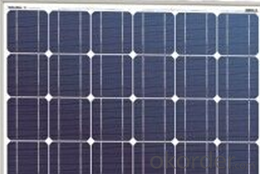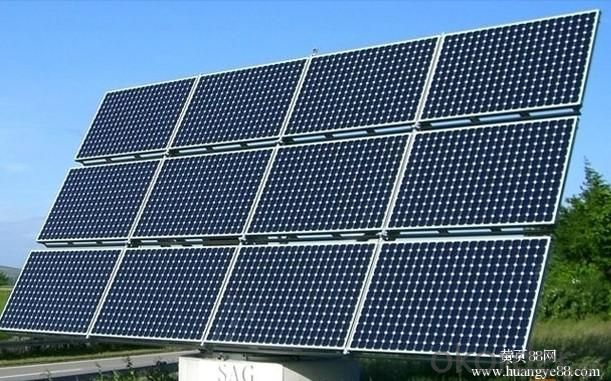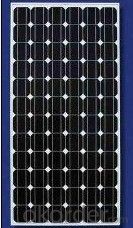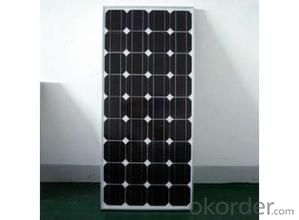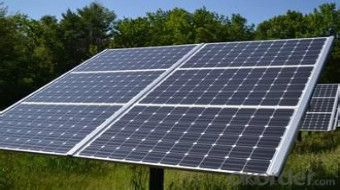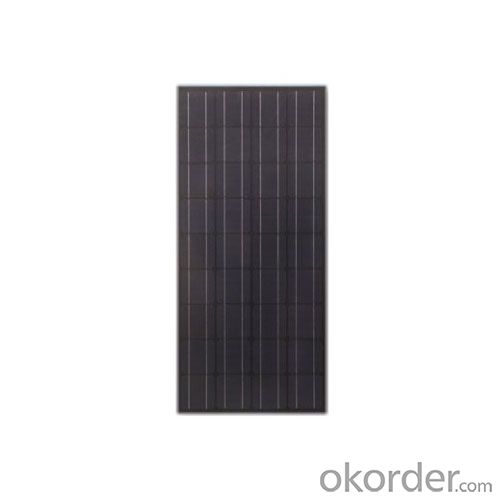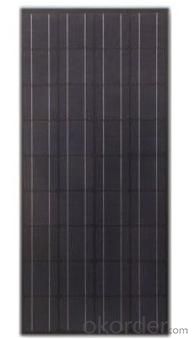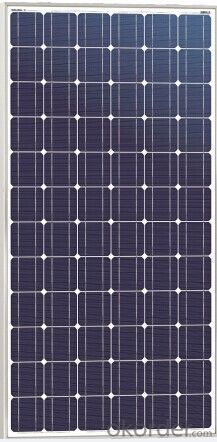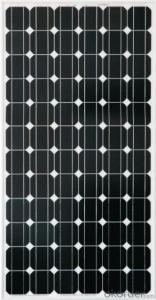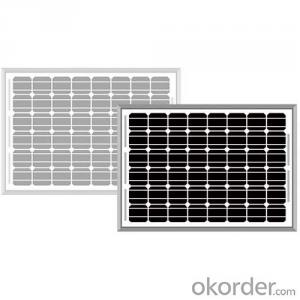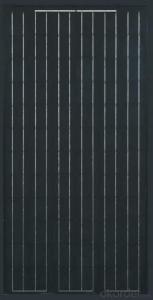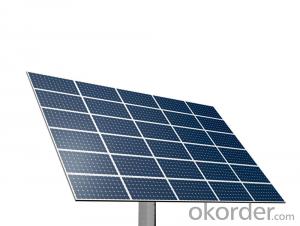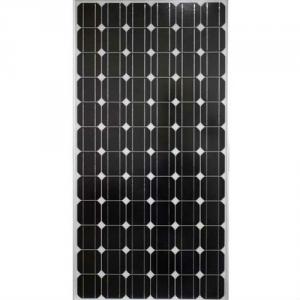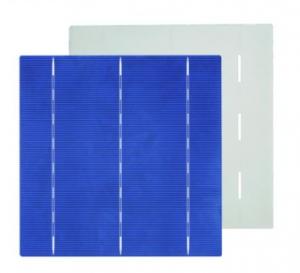Monocrystalline PV Module 190W-200W
- Loading Port:
- China Main Port
- Payment Terms:
- TT or LC
- Min Order Qty:
- -
- Supply Capability:
- -
OKorder Service Pledge
OKorder Financial Service
You Might Also Like
Structure
High Efficiency Monocrystalline PV Module190W-200W
Solar panel refers either to a photovoltaics (PV) module, a solar hot water panel, or to a set of solar photovoltaics modules electrically connected and mounted on a supporting structure. A PV module is a packaged, connected assembly of solar cells. Solar panels can be used as a component of a larger photovoltaic system to generate and supply electricity in commercial and residential applications.
Features
Nominal 20V DC for standard output.
Out standing low-light performance.
Heavy-duty anodized frames.
High transparent low-iron, tempered glass.
Rugged design to withstand high wind pressure, hail and snow load.
Aesthetic appearance.
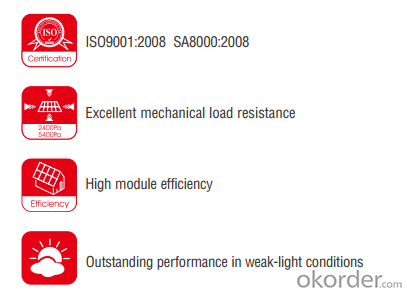
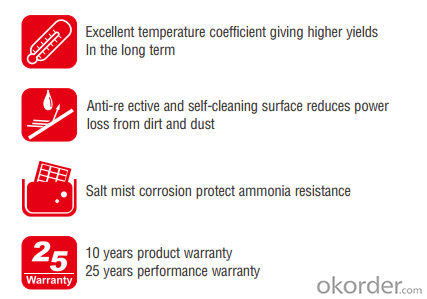

Images
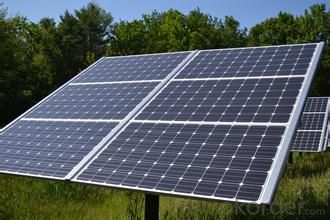
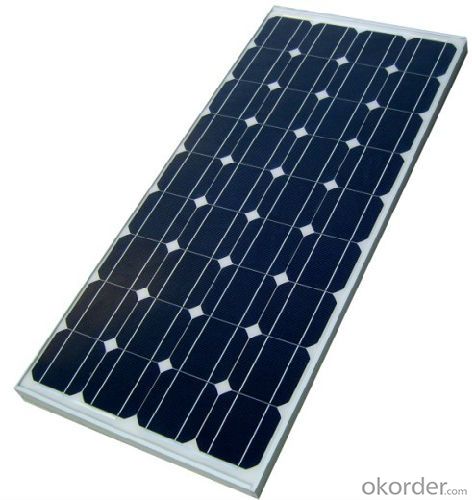
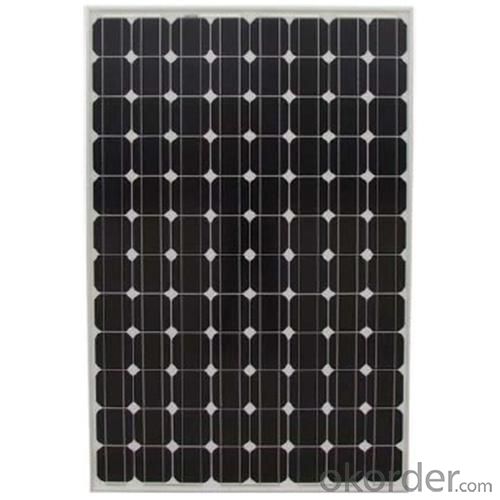
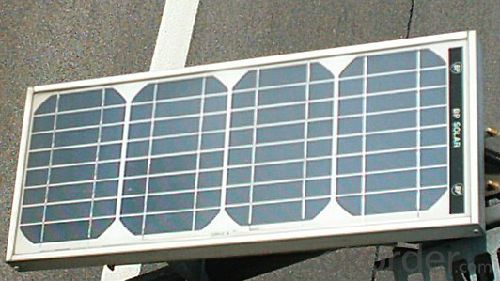
Specification
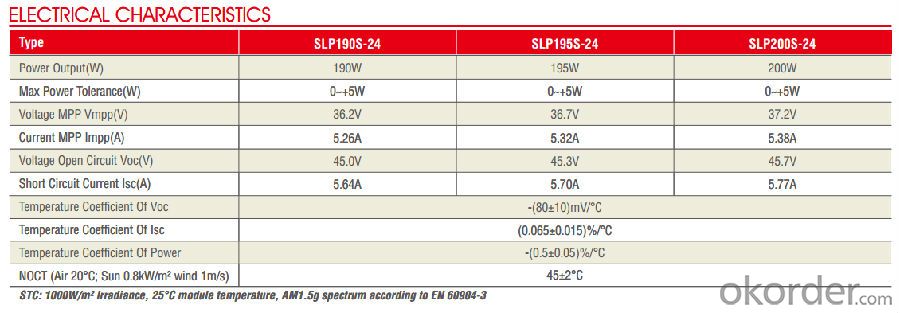

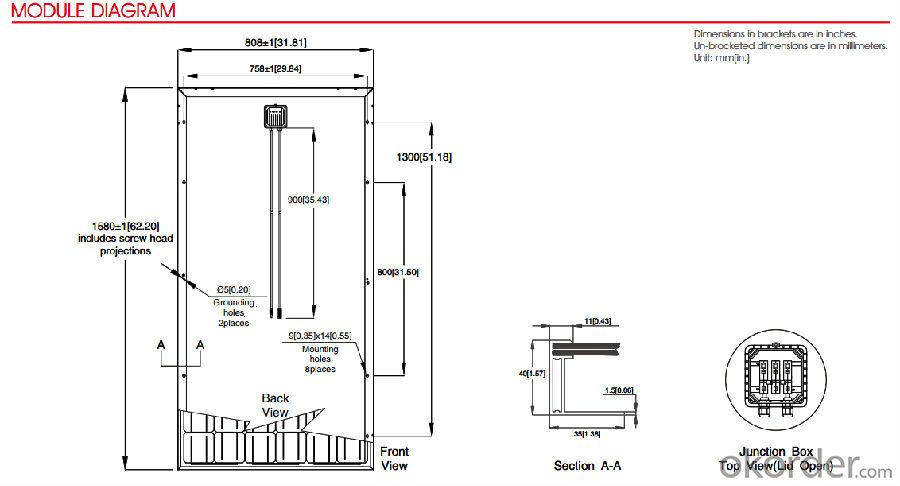
FAQ
Q:Can we visit your factory?
A:Sure,welcome at any time,seeing is believing.
Q:Which payment terms can you accept?
A:T/T,L/C,Moneygram,Paypal are available for us.
Q:Do you have the CE, TUV, UL Certification?
A:We’ve already passed all the tests, and any certificate is available.
Q:Have you ever sold your products to companies in my country?
A:Of course, we have customers in all general PV markets, but I think we should expand our market share along with the market growth.
- Q: How much energy can a solar cell generate?
- A solar cell can generate varying amounts of energy depending on factors such as its size, efficiency, and the amount of sunlight it receives. On average, a standard solar cell can produce around 200 to 400 watts of power per square meter under ideal conditions. However, advancements in technology continue to increase the efficiency and output of solar cells, allowing for even greater energy generation in the future.
- Q: Can solar cells be used to charge batteries?
- Yes, solar cells can be used to charge batteries. Solar cells convert sunlight into electrical energy, which can be harnessed to charge batteries by connecting them to a solar panel. The solar panel absorbs sunlight, converts it into electricity, and then transfers that energy to charge the batteries.
- Q: How do solar cells perform in areas with high levels of electromagnetic interference?
- Solar cells may experience reduced performance in areas with high levels of electromagnetic interference. This interference can disrupt the functioning of solar cells, affecting their efficiency and power output. Measures such as shielding or grounding can be implemented to mitigate the impact of electromagnetic interference on solar cell performance.
- Q: Can solar cells be used in camping or outdoor recreational activities?
- Yes, solar cells can be used in camping or outdoor recreational activities. They are a convenient and environmentally friendly way to generate electricity in remote locations where power outlets may not be available. Solar panels can be used to charge portable devices such as phones, laptops, or camping lights, providing a sustainable source of energy while enjoying outdoor activities.
- Q: Can solar cells be used for off-grid applications?
- Yes, solar cells can be used for off-grid applications as they convert sunlight into electricity and can be utilized in remote areas or places lacking access to the traditional power grid. They provide a sustainable and reliable source of energy for powering various off-grid applications such as cabins, RVs, boats, and remote communication systems.
- Q: What is the payback period for installing solar cells?
- The payback period for installing solar cells varies depending on several factors, such as the initial cost of installation, the amount of energy generated by the solar cells, and the cost of electricity in the area. Generally, the payback period ranges from 5 to 15 years, but it can be shorter or longer depending on these factors.
- Q: Can solar cells be used in mining operations?
- Yes, solar cells can be used in mining operations. They can provide a reliable and sustainable source of electricity for various mining activities, such as powering equipment, lighting, and ventilation systems. Solar energy can significantly reduce the dependence on fossil fuels in mining operations, leading to lower operational costs and reduced environmental impact.
- Q: Can solar cells be used in disaster relief efforts?
- Yes, solar cells can be used in disaster relief efforts. They are a reliable and sustainable source of energy that can provide electricity in areas affected by natural disasters, where power grids may be damaged or non-existent. Solar cells can be used to power emergency lighting, communication systems, medical equipment, and water purification systems, among other essential needs. Additionally, solar energy can be harnessed to charge mobile devices and provide a means of communication and access to information during these critical times. Overall, solar cells are a valuable tool in disaster relief efforts, offering a clean and renewable energy solution to support affected communities.
- Q: Can solar cells be used for powering shopping malls?
- Yes, solar cells can be used for powering shopping malls. Solar panels can be installed on the roofs or parking lots of shopping malls to generate electricity from the sun. This renewable energy source can help reduce the mall's reliance on traditional grid power and lower their carbon footprint. Additionally, the excess energy produced during off-peak hours can be stored or sold back to the grid, making solar cells a viable option for powering shopping malls.
- Q: Can solar cells be used for powering electric vehicles in motion?
- Yes, solar cells can be used for powering electric vehicles in motion. Solar panels can be installed on the roof or any other surface of the vehicle to harness sunlight and convert it into electricity. This electricity can be used to charge the vehicle's batteries while it is moving, supplementing the power from the grid or reducing reliance on it. However, the efficiency of solar cells and limited surface area on vehicles may pose challenges in meeting the entire power demand of electric vehicles solely through solar energy. Nonetheless, solar technology has the potential to contribute to the overall power supply of electric vehicles, making them more sustainable and reducing their carbon footprint.
Send your message to us
Monocrystalline PV Module 190W-200W
- Loading Port:
- China Main Port
- Payment Terms:
- TT or LC
- Min Order Qty:
- -
- Supply Capability:
- -
OKorder Service Pledge
OKorder Financial Service
Similar products
Hot products
Hot Searches
Related keywords
